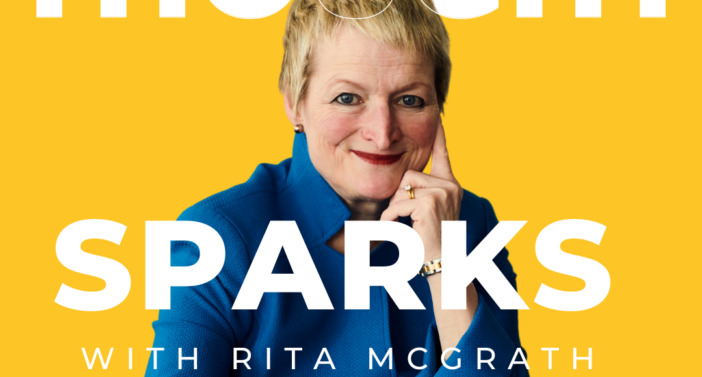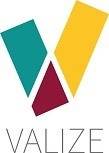
It’s going to be a while before we truly make sense of 2023. A pervasive sense of uncertainty seemed to linger in the atmosphere. New projects got put on hold, once-exuberant tech companies laid people off and we’re still suffering the lingering aftereffects of the pandemic in ways large and small. Incredibly, to me, this year marked the 10th anniversary of the publication of my book, The End of Competitive Advantage. In it, I introduced the concept of Transient Advantage, the idea that competitive advantages that were once believed to be long-lasting are becoming shorter and shorter as barriers to entry come down and competition can come from literally anywhere. The book introduced a new playbook for strategy:
- Going from the assumption that stability is the normal thing to the recognition that change is;
- Building the practices of healthy disengagement when a program or project needs to end;
- Putting the best resources against the best opportunities by deftly moving them around the organization;
- Making innovation a proficiency, not a sideshow;
- Promoting different kinds of leaders who are discovery-driven, create psychological safety, and get information directly from the ‘edges’; and somewhat presciently;
- Dealing with a new kind of workforce – one that operates with a ‘tour of duty’ mindset and which doesn’t expect to spend their entire careers with one organization.
When you practice the principles of transient advantage effectively, you can create a pipeline of new advantages that allow you to catch the “waves” of opportunity as they gather, crest, and fall away. I believe it’s how we will compete in the future. Or at least how the winners will compete in the future!
In Case You Missed It
My regular “Thought Sparks” articles helped make sense of some of the more intriguing phenomena and happenings of 2023.
From April, one of the most damaging patterns in corporate innovation, the on-again, off-again pattern causes innovation programs to ebb and flow like some strange seasonal plant.
From August, how WeWork and its backers got carried away by an investment bubble and how that cost them almost $40 billion in value.
In June, the truly tragic implosion of the Titan submersible was an example of how dismissing low-level concerns can lead to complex systems failure.
From May, how our current state of uncertainty maps that of the financial crisis of 2008,right down to organizations’ insistence on halting innovation programs, just when they need them most.
Also from May, why Lululemon’s acquisition of Mirror was an overoptimistic foray into thealready crowded market of at-home fitness, and why mismatched business models are often a recipe for disappointment.
From April, as the company suddenly faced a shortage of drivers, see what Uber CEO Dara Khosrowshahi learned when he signed up as a driver for his own company –– and what glaring issues still should be addressed.
And from March, why it’s nearly impossible to cancel a subscription these days, but the FTC is finally intervening with their “Negative Option Rule” to combat this dark pattern.
And from March as well, How to harness anxiety how to harness anxiety rather than let it hold you back, with input from the amazing Morra Aarons-Mele.
Subscribe to Weekly Thought Sparks
In the News
This Forbes piece is about the trend of disruptive innovation, from the dot.com bubble totoday.
How can tech industry leaders see around corners? By positioning themselves at the edges of their organizations.
The digital revolution is upon us, and capitalism is likely to change profoundly, with growing concerns about the impact of AI and what we’re doing to the environment.

Tool of the month:
SparcHub Sage

In February, we’ll be launching our SparcHub Sage program.
SparcHub is a software program based on the principles in my book, Discovery Driven Growth, which allows you to enact them in your organization.
Join our webinars on January 17, January 31, and February 21 for a live demonstration of the software, or check out the recorded demonstration.
Upcoming Events
On January 5, I hosted with communications expert Matt Abrahams for my Friday Fireside Chat. A Stanford lecturer and an award-winning podcast host, Matt walked us through his six steps to improve spontaneous speaking skills. Check out the recording!
On January 19, Bob Sutton will be joining my Friday Fireside Chat. Co-author of the forthcoming book “The Friction Project” and coiner of the ever-popular “No A**holes” rule, he’ll give insight on how leaders can make things easier in organizations. Tune in!
In 2024, I’m looking forward to three week-long sessions of my Columbia course “Leading Strategic Growth and Change”. We’ll discuss how to strike the balance between needed innovation and maintaining your day-to-day operations.
A 2024 full of promise
From me and mine to you and yours, I wish you all the best for a dynamic 2024! And as I always like to think about our dynamic conversations, “to be continued!”
Get in touch, keep in touch!
I work with organizations to run workshops, provide training and offer ideas. Everything from one-on-one leadership coaching to speaking in really big conference rooms. Think that might be useful? Get in touch!
Twitter @rgmcgrath
LinkedIn: www.linkedin.com/in/ritamcgrath
Website: www.ritamcgrath.com
Valize website: www.valize.com
Warmly,
Rita
